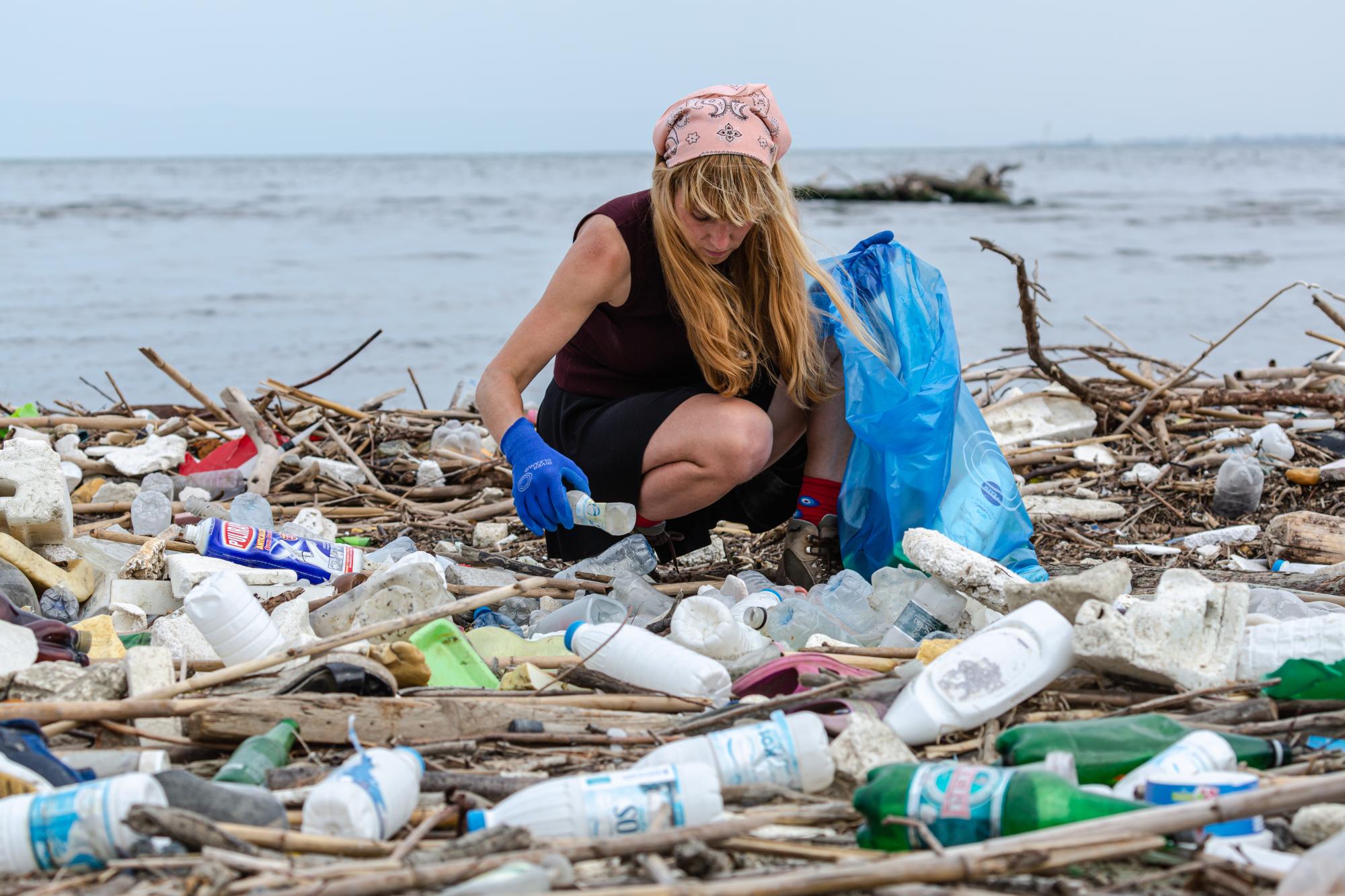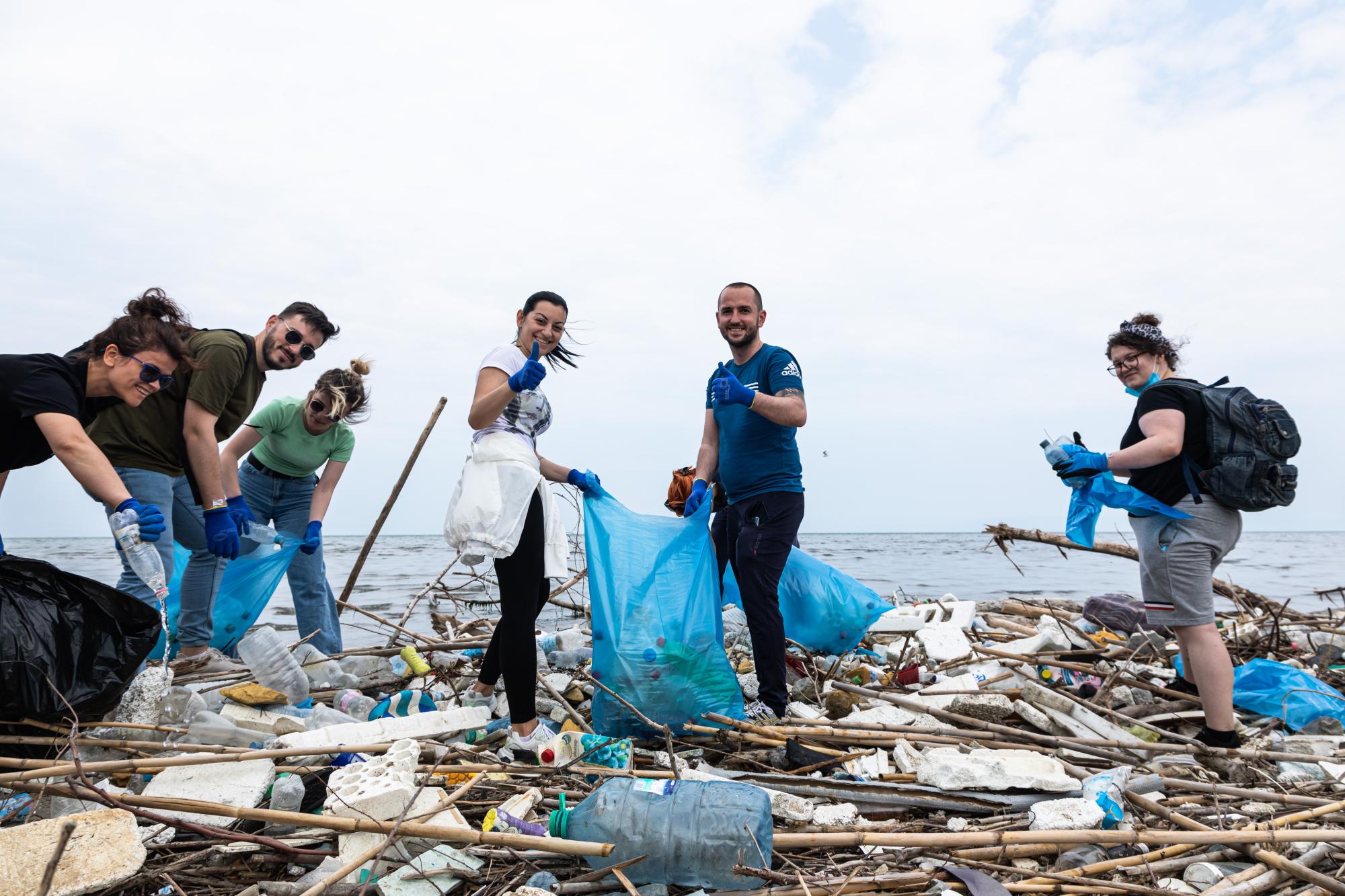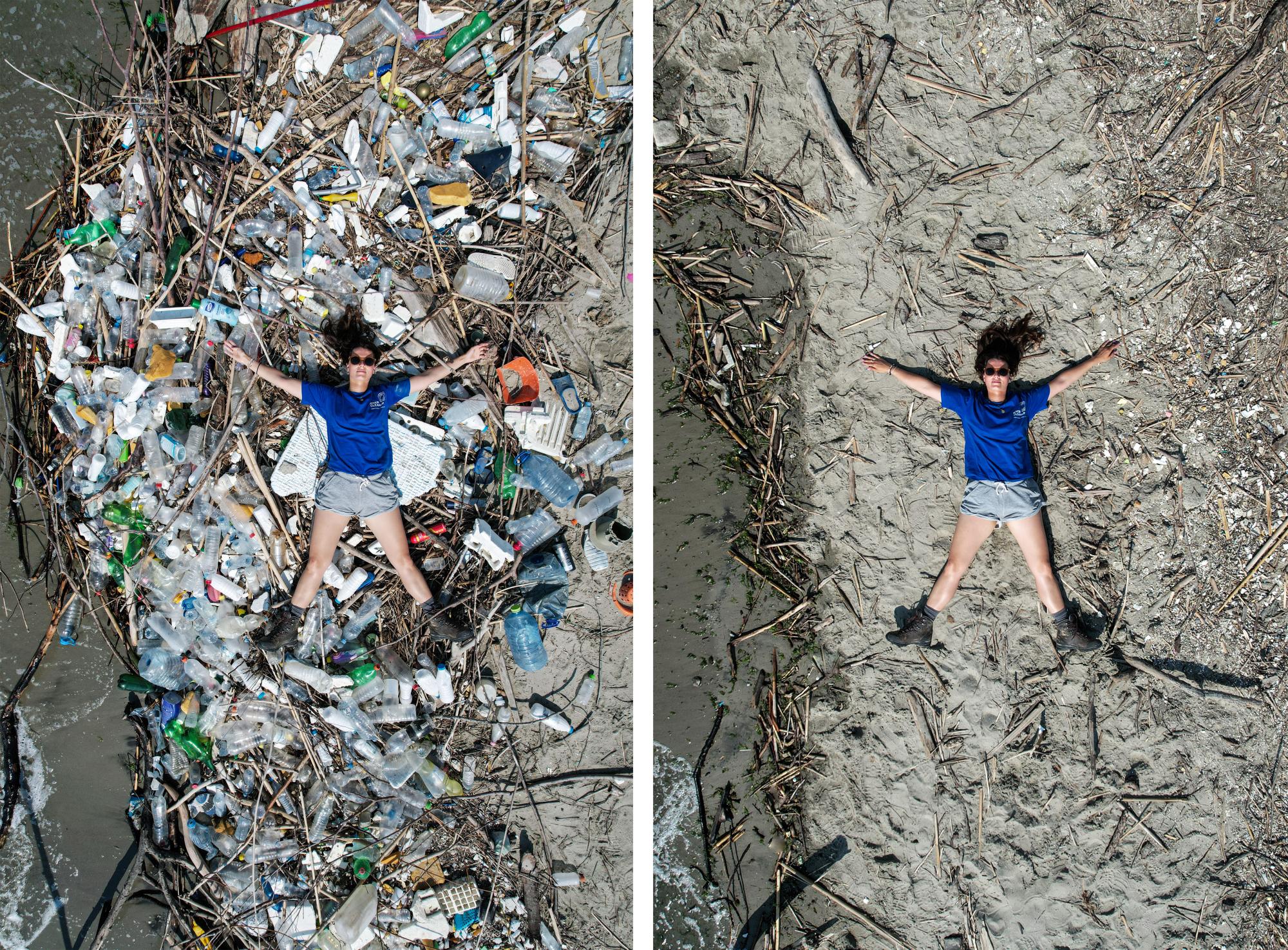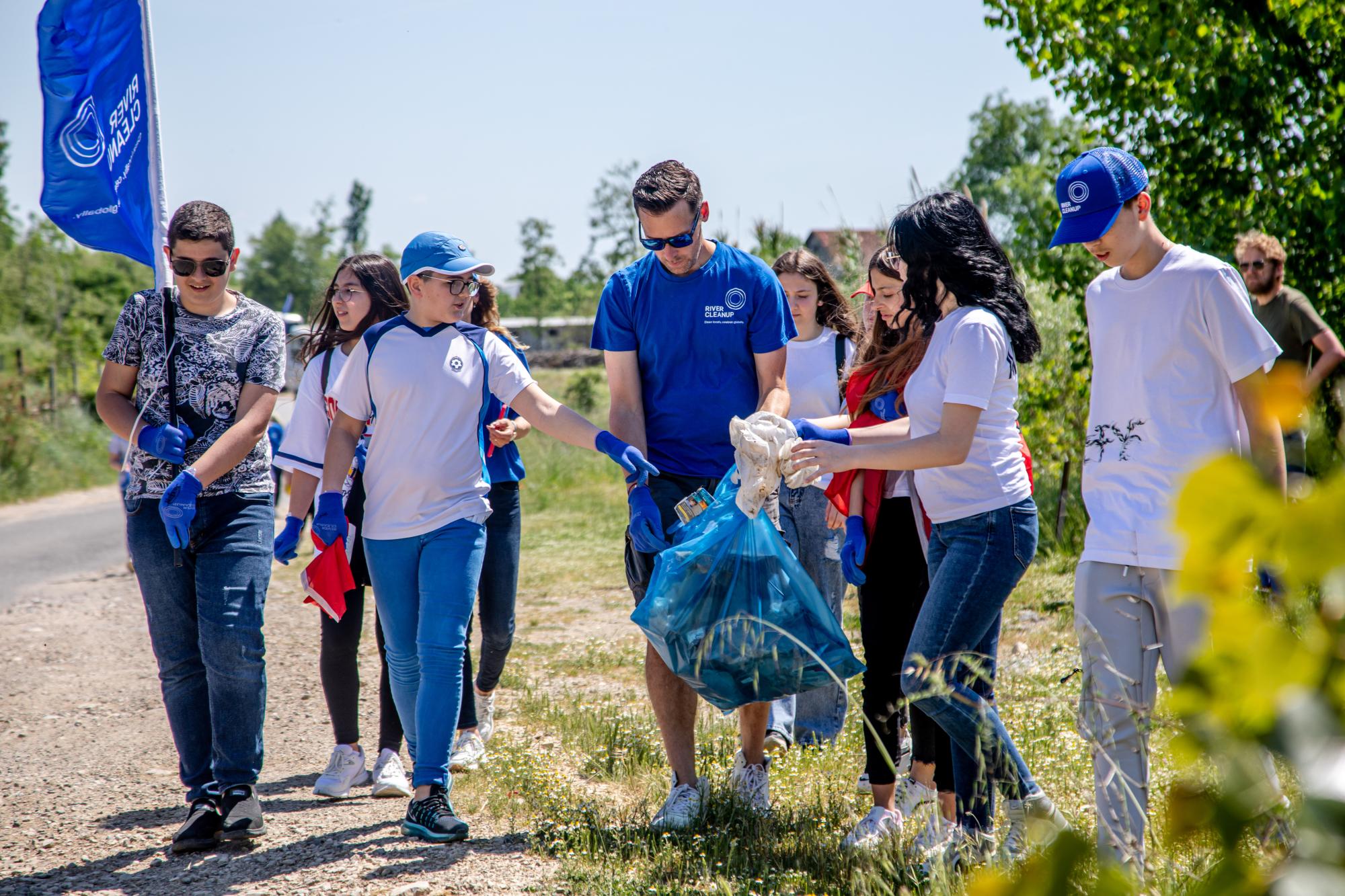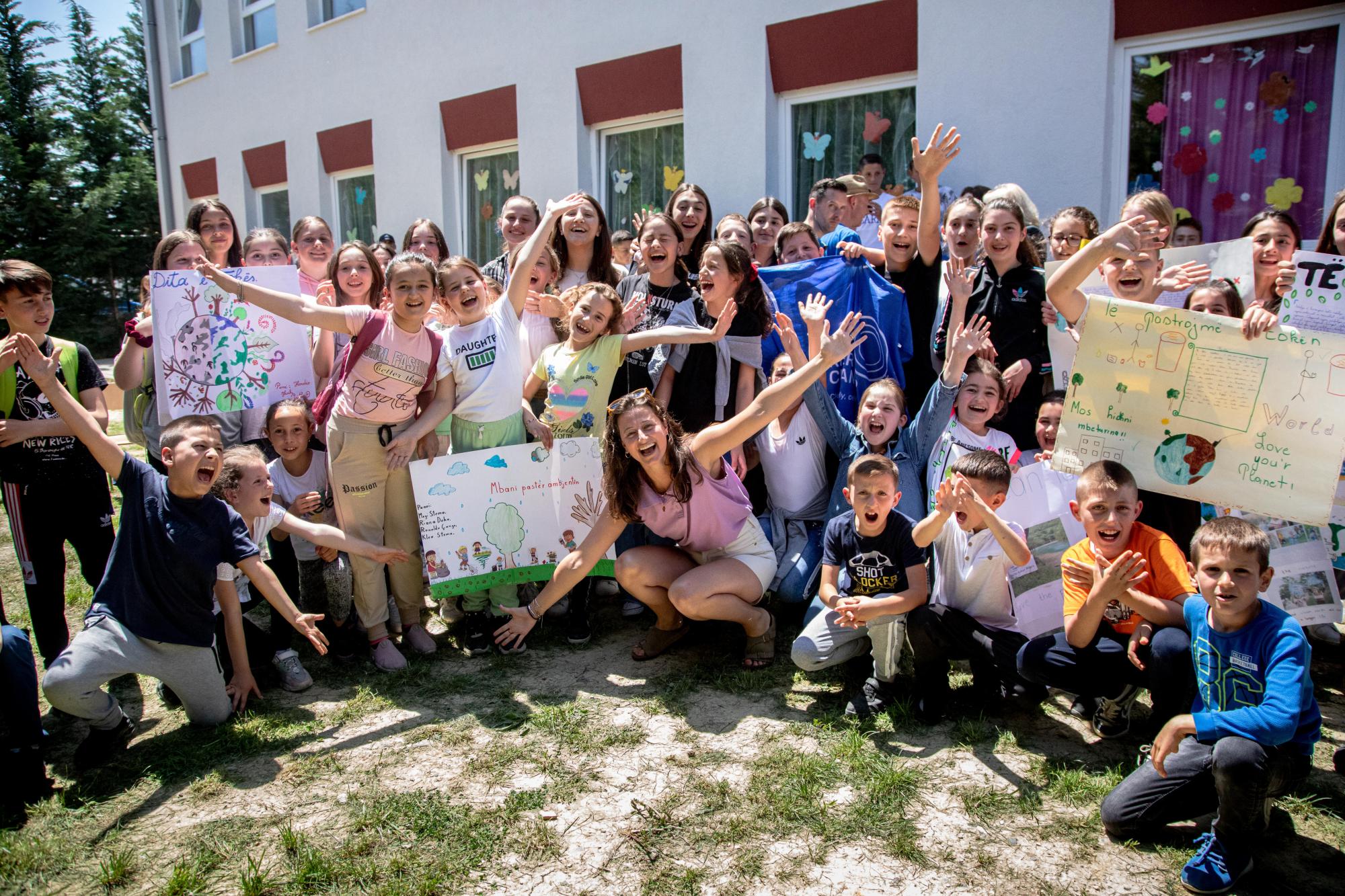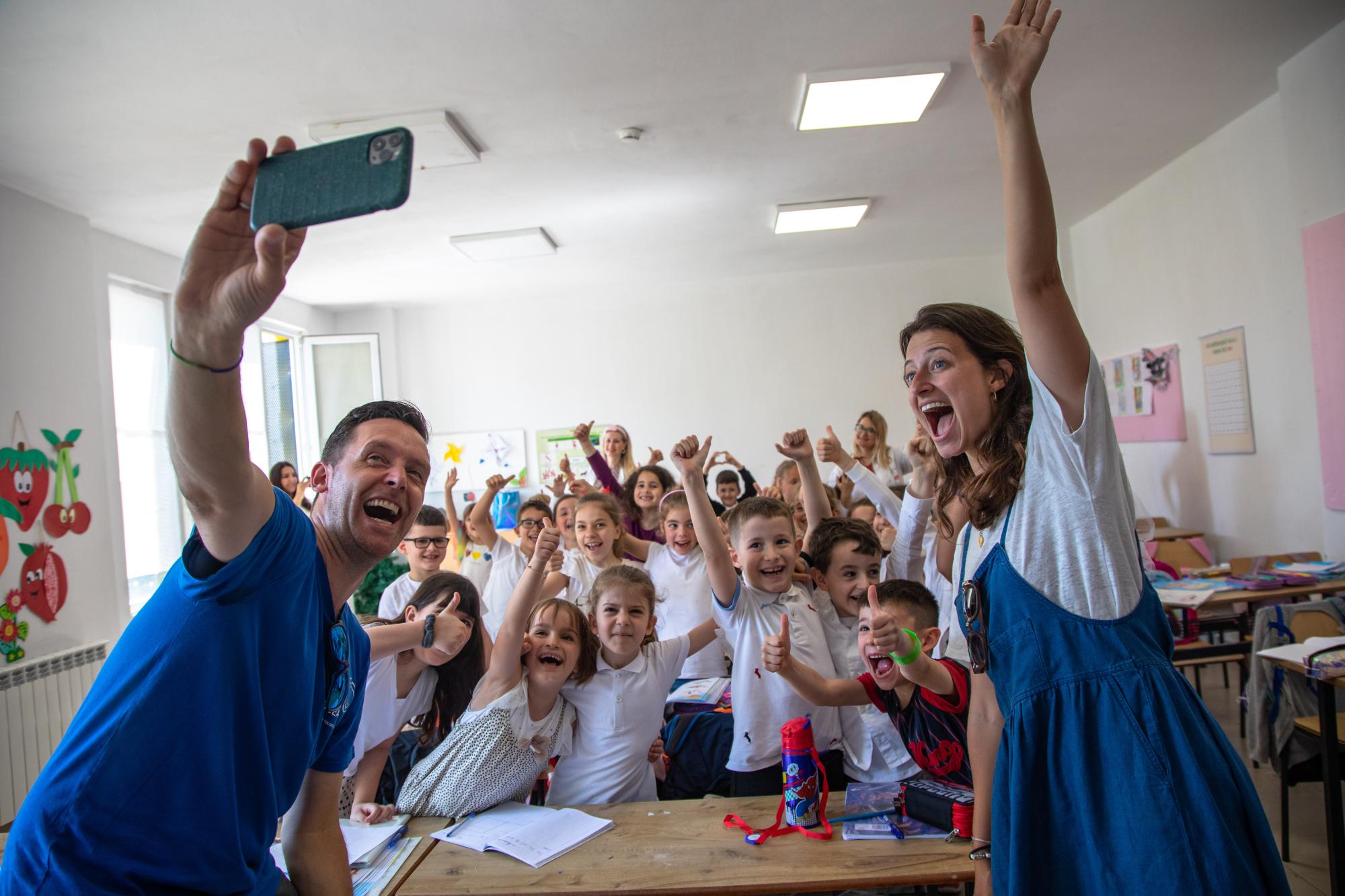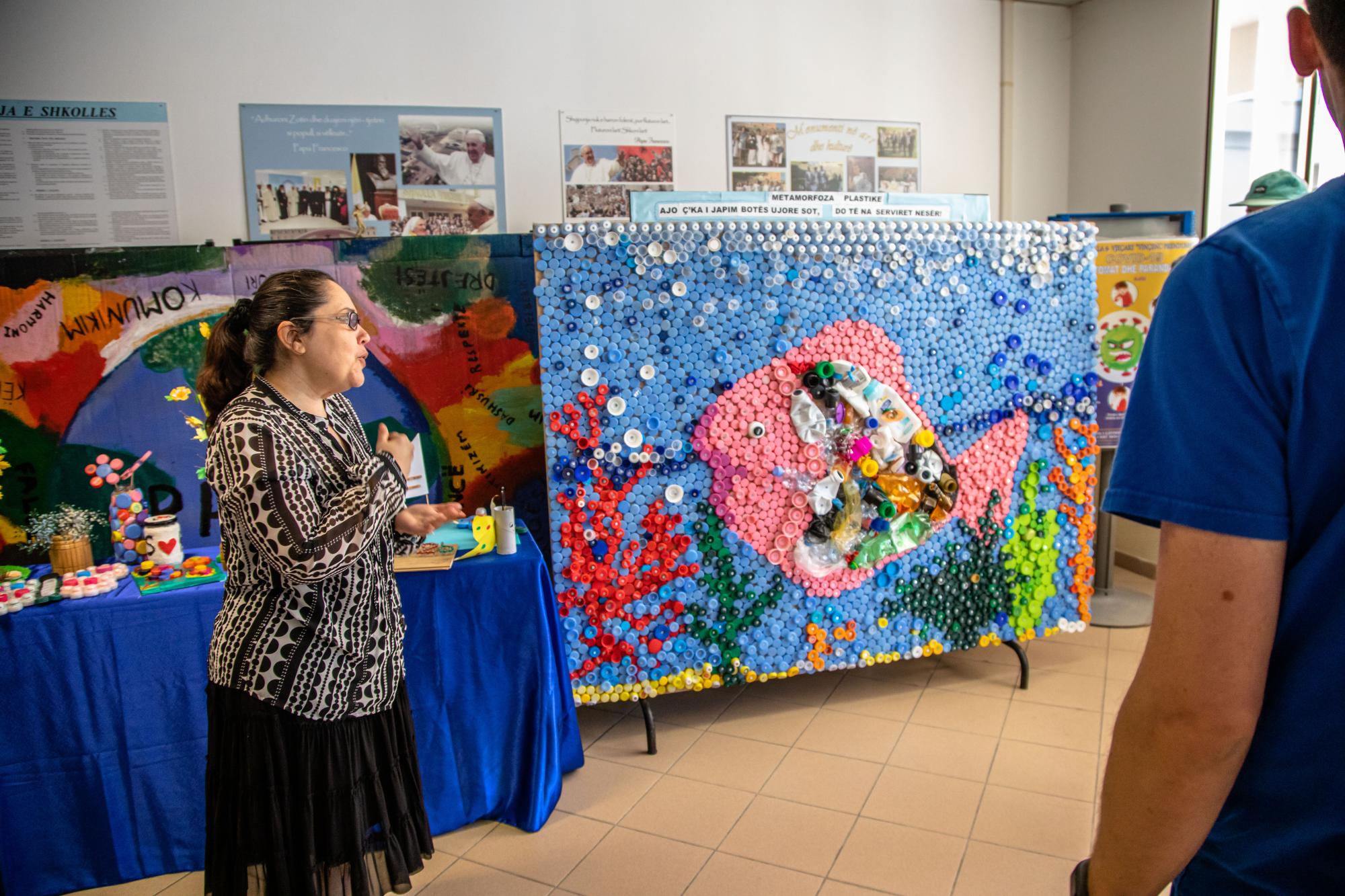Every year, eleven billion kilograms of plastic end up in our oceans, most of it coming from rivers. River Cleanup, a partner of A.S.Adventure, tries to prevent this. One place it does this is in Albania, where one of the most polluted rivers in Europe flows into the Mediterranean.
Text: Tom Peeters for A.S.Magazine
Photographs: Ines Goovaerts
A deserted beach in Albania. The Adriatic Sea lies shimmering before us. Behind us stretch neon green hills with winding paths where you can take endless hikes. Cows are grazing down by the water; a light breeze is playing in the marram grass. It seems picture perfect. But just in front of our feet, there is a human head in the sand, ripped off a mannequin. Next to it are a pill bottle, a shampoo bottle, a slipper and a toothbrush. The source of all this rubbish is the nearby mouth of the river Ishëm, one of the most polluted rivers in Europe. Every year, 700,000 kilograms of waste flow into the Mediterranean here. Some of that gets washed up immediately. The sea breaks down the rest into small particles – microplastics – that get into the food chain. Ultimately, they end up in our stomachs.
According to the WWF, the Mediterranean is one of the most polluted oceans in the world. It contains only one percent of the water worldwide, but seven percent of microplastics. And of all the countries around the Mediterranean, Albania recycles the least. Environmental protection agency IUCN has calculated that over 10 million kilograms of Albanian waste end up in the sea every year, like a dripping tap that constantly leaks plastic. But there’s hope. On the beach, people are flocking together: River Cleanup volunteers from Albania and Belgium. They get to work and in no time, they have filled 400 bin bags, picking up some 2000 kilograms of litter.
Ripple effect
In addition to cleaning up, we are also here to visit schools. Twelve schools, each one located along the river Ishëm, are participating in the River School Challenge. Pupils learn about the issues involved, organise clean-ups and bring plastic waste from their homes to school. A local waste-processing company pays them a certain amount for each kilogram collected. They use the money to pay for library books, footballs or extra English lessons. And River Cleanup offers an extra amount for the school that collects the most plastic. “We do it for the environment, but also for ourselves,” a fourteen-year-old girl explains. “For the fish and turtles,” a boy adds. “Many people think Albania is a dirty country. If we don’t clean up, who will?” a third child chips in. Thomas de Groote, the founder of River Cleanup, is beaming. “Hearing you guys say that automatically makes me grow a metre taller.” This is the effect he is hoping for: by touching the hearts of children, he wants to reach the rest of the Albanian population, too. There is a reason why River Cleanup’s logo consists of three concentric circles like the ripples in a pond. The impact of one individual –a single droplet – can be enormous.

